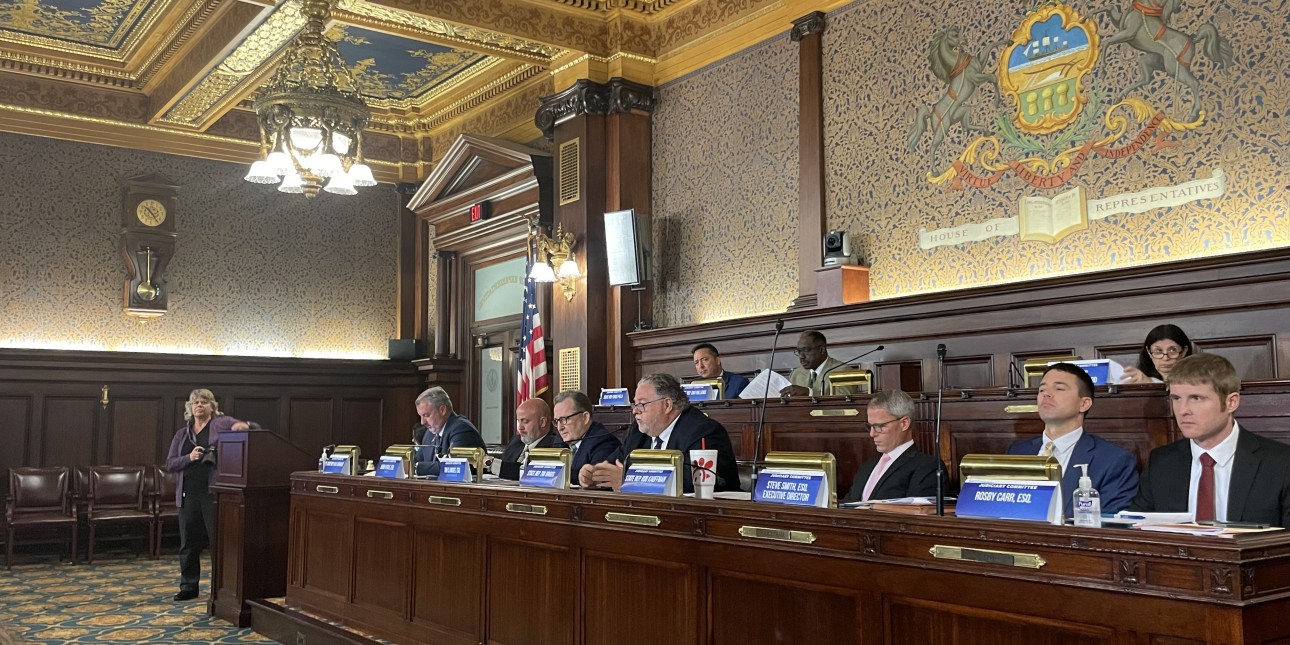Legislative Victory: Commutation Reform Bill Passes Out Of House Judiciary Committee

On Monday, November 13th we were at the State Capitol in Harrisburg as the House Judiciary Committee passed HB 1410, House Speaker Joanna McClinton’s bill that would amend the state Constitution to return PA’s commutation system to the more feasible requirement of a majority vote rather than the unanimous support currently required. The 14-11 vote was split along party lines, with all Democrats supporting it.
Before the era of mass incarceration, the Board of Pardons had a robust practice of frequently commuting the sentences of incarcerated people who had turned their lives around. That changed in 1997 when politicians, fueled by the rise of tough-on-crime politics, amended the state Constitution to require a unanimous vote for commutation at the Board. Recommendations for commutation dropped by more than 90%, effectively shutting it down as a viable pathway home for people sentenced to die in Pennsylvania state prisons. In recent years Amistad Law Project and others in the movement to end mass incarceration have had some success in slightly reopening the door to freedom at the Board of Pardons. From the time we began our campaign in 2018 to October 2023, we’ve seen 57 people sentenced to life without parole and ‘virtual life’ sentences recommended by the Board for commutation, including 13 of our clients. In the full two decades before 2018, only 15 lifers were recommended.
While we celebrate this small but significant progress, a unanimous vote presents enormous challenges for people who have turned around their lives to get the justice they deserve. HB 1410 seeks to restore the Board to the historical system that served Pennsylvania well for decades. That’s important because it’s not easy to receive a recommendation for commutation from the Board of Pardons. An incarcerated person would still have to be reviewed by their unit team, the superintendent of their prison, the Department of Corrections, and then the Board of Pardons merit review before receiving a public hearing. If granted a public hearing, the District Attorney involved in the original case would decide whether to recommend or oppose the case, the victim’s family members have a chance to weigh in, and after countless hours of interviews, the Board would have to approve the case with a majority (at least 3 out of 5) vote. At that point, the Governor has the final say by signing off on the cases that reach his desk.
The process of applying for commutation is extremely thorough, and along with juvenile lifers, commuted lifers have the lowest recidivism rate of any group of people coming home from prison. Of all the lifers and people serving virtual life sentences who were commuted during the recent progress under the Wolf administration, not one has committed a new crime or been sent back to prison. A majority vote simply gives those who have turned their lives around a more legitimate chance to make their case, since a unanimous vote depends on every member of the Board being open to showing mercy, which is not always the case.
Now that HB 1410 has passed out of the House Judiciary Committee, it will go to the House floor for a full vote. Because it’s a constitutional amendment, it will need to pass through both legislative bodies in two consecutive sessions to make it on the ballot. While it’s a long road, we are heartened by this vital step toward restoring the Board of Pardons to a viable pathway home for incarcerated people.